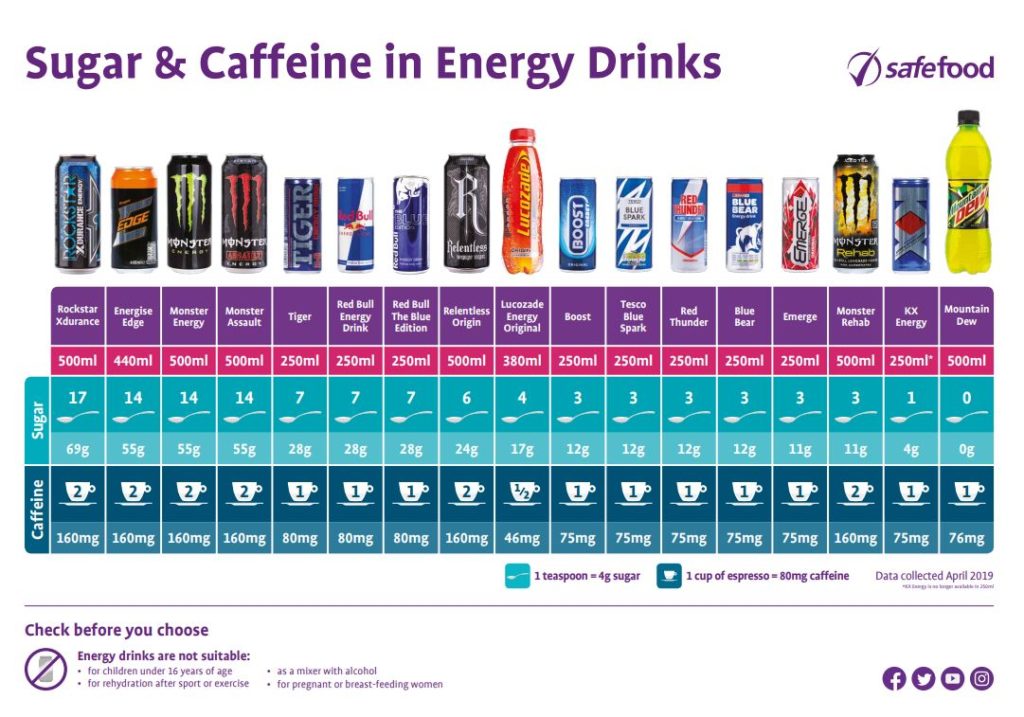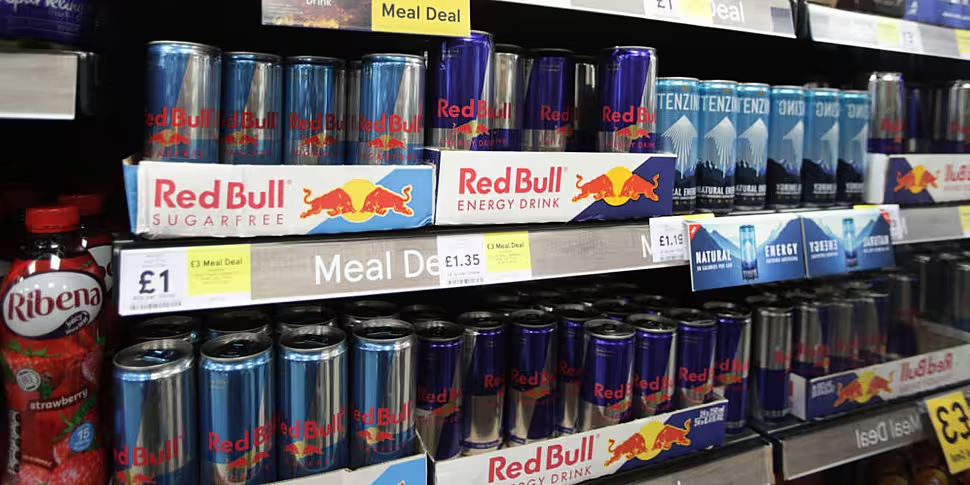A new study has found that there has been a drop in sugar content, but an increase in caffeine, in energy drinks.
Safefood undertook the study to identify which brands and energy drinks were available to purchase in Irish supermarkets in 2019.
Both regular energy drinks and diet/sugar free variations were included in the survey.
All energy drinks available in each of the supermarkets were purchased once only.
It found the number of energy drinks identified increased from 39 to 42 between 2015 and 2019.
The 42 drinks included 26 brands which was a "marked increase" in the number of drinks with a diet or sugar-free alternative and multiple flavour variations.
There has also been a growth in own-brands - from only three in 2015 to eight different own-brands in 2019.
The 2015 survey identified 30 regular (containing sugar) energy drink products with an average sugar content of 31 g per serving/10 g per 100 ml.
The 2019 data shows that the mean sugar content of the drinks surveyed dropped to 22.6 g per serving.
 Source: Safefood
Source: SafefoodThe biggest reduction was found in supermarket own-brand products.
This reduction is equivalent to almost two level teaspoons of sugar per serving.
Of the three leading brands, there was a reduction in the sugar content of one of these - but no reduction in the sugar content of the other two.
However the caffeine content increased between 2015 and 2019.
In 2019, the caffeine content ranged from 46-160 mg per serving with a mean caffeine content of 100.3mg per serving, equivalent to 1.25 cups of espresso.
The caffeine content ranged from 75-106 mg per 250 ml serving compared to a range of 46-160 mg (equivalent to 0.6-2 espressos) per 500ml serving.
While in 2015 the mean caffeine content was 90mg per serving, which is equivalent to 1.1 cups of espresso and caffeine levels ranged from 37.5 mg per serving to 160 mg per serving.
Prior to the implementation of the sugar tax, the 2015 survey found that 74% of energy drinks would have been eligible for taxation.
But the 2019 data shows that only 41% of energy drinks fall into this category.
Research shows that one 500ml energy drink can contain up to 17 level teaspoons of sugar, and the same amount of caffeine as in two cups of espresso.
Read the study in full here









